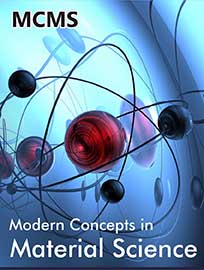 Research Article
Research Article
The Effect of Durability and Corrosion Behavior on the Concrete Treated with Chemical Inhibitor
A Fahrizal and Tahani Al-Ghareeb*
Research and Technology/Surface Team-Kuwait Oil Company, Kuwait
Tahani Al-Ghareeb, Research and Technology/Surface Team-Kuwait Oil Company, Kuwait.
Received Date: October 04, 2021; Published Date: December 15, 2021
Abstract
Chloride-induced corrosion of steel reinforcement and the reaction of atmospheric carbon dioxide with cement paste are the most important causes of premature failure in marine-reinforced concrete structures. Among the available methods, corrosion inhibitors offer a simple and costeffective technique in reducing the chloride-induced corrosion on the steel reinforced concrete.
This study was conducted to evaluate the efficacy of adding two commercial concrete admixtures named Migrating Corrosion Inhibitor (MCI) and Waterproofing Concrete Admixture (HCA) to Ordinary Portland Cement (OPC) in order to protect steel reinforcement from corrosion in seawater environment and was aimed at studying the effect of using sulphate resistant cement (SRC) in concrete mix for marine structures. The effectiveness of the inhibitors was evaluated both in the field and in the laboratory using long-term rebar corrosion monitoring in reinforced concrete, electrochemical corrosion testing techniques, corrosion potential and also through rebar visual inspection. The evaluation was performed on eight different types of concrete mixes and two different water cement (w/c) ratios of 0.4 and 0.6 with regular steel rebar.
From the tests and study, the compressive strength and water absorption of the concretes cured with fresh water is better performance than those cured with seawater. The concretes mixed with admixtures (MCI and HCA) have lower water absorption than the control mix, which have an OPC and no inhibitors. The HCA mixed concrete samples showed the better compressive strength and water resistance than the MCI mixed concrete samples at same w/c ratios.
The concrete samples injected with MCI and HCA have higher corrosion resistivity compared to the concrete samples without admixture chemicals. Whilst injection of HCA in OPC Concretes improved the corrosion resistivity than injection of MCI.
Keywords: Seawater environment; Steel reinforced concrete; Corrosion; Migrating corrosion inhibitor (MCI); Waterproofing concrete admixture (HCA)
-
A Fahrizal, Tahani Al-Ghareeb. The Effect of Durability and Corrosion Behavior on the Concrete Treated with Chemical Inhibitor. Mod Concept Material Sci. 4(4): 2021. MCMS. MS.ID.000594. DOI: 10.33552/MCMS.2021.04.000594.
-
Seawater environment, Steel reinforced concrete, Corrosion, Migrating corrosion inhibitor (MCI), Waterproofing concrete admixture (HCA), Durability, Water absorption, Corrosion resistivity, Materials
-

This work is licensed under a Creative Commons Attribution-NonCommercial 4.0 International License.






